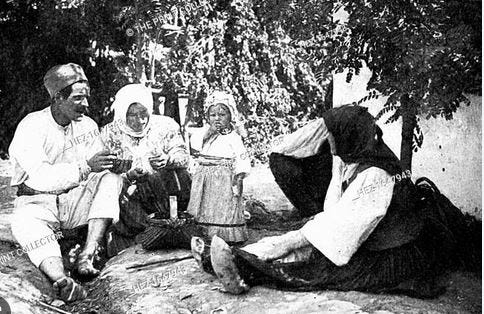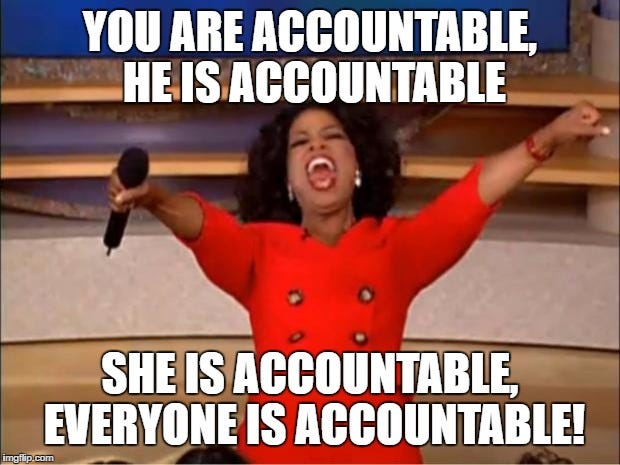Democracy: forking the project
And other great things on the net this week
Democracy: Forking the project
Herewith the abstract of an essay I’ve written recently. Email me on ngruen@gmail.com with a Google Docs friendly email and I’ll send you the full essay.
Citizens’ juries — where a representative sample of citizens deliberate and decide on political issues — are increasingly popular. Representing constituents by sampling and deliberation rather than election and competition, they could deepen existing democracies by partnering existing institutions as a check and balance. But the public understand their potential poorly because most juries have been one-off, single-issue exercises held by (and so, for) existing institutions.
With governance arrangements keeping funders at arms length, progress could begin with a philanthropically and crowd-funded standing citizens' jury. Without any formal power, such a “People’s Council” could nevertheless shadow other houses of parliament/congress’s decisions and pass resolutions of its own. Had such a body existed, it would have been harder to:
abolish carbon pricing in Australia,
negotiate such a ‘hard’ and damaging Brexit in the UK,
demonise nuclear energy in fighting climate change,
stop the US Senate convicting President Trump for inciting insurrection.
Even without formal, constitutional power, where it disagreed with public votes taken on the floor of a house, it could call for an additional secret ballot, thus bidding for more influence and modelling the role it would have as a check and balance — in an officially constituted ‘people’s branch’ of government.
To develop its own capabilities and autonomy, the people’s branch must establish its own internal governance and leadership structures. To ensure their consistency with the egalitarian spirit of sortition and to minimise its capture by the self-assertive, charismatic and power-hungry, I suggest eschewing direct competition for office. The brevia is one such mechanism. It minimised factionalism and set the stage for 500 years of stability in Venice. It involves randomly selecting some ‘electors’ from the council and getting them to identify those most worthy of internal leadership roles. A ‘council of elders’ of past participants of citizens’ juries could be chosen by such means to act as a source of advice and support to current juries and as a repository of corporate memory and evolving traditions.
If the people’s branch were developed along these lines, it would become an ideal ‘honest broker’ to preserve the basic norms of procedural fairness on which peaceful government is founded. This is already happening in some jurisdictions — for instance, with a people’s council with the Michigan Independent Citizens Redistricting Commission. However, over time the people’s branch could expand to be given a substantial role in the appointment of judges and officials. America’s founding fathers attempted to constitutionally entrench such procedural norms into the US constitution via Senate confirmations, but that mechanism is now under partisan siege.
Rory Sutherland on Nicholas Gruen
I met the ever generous and gregarious Rory Sutherland at the best economics conference anywhere in the world — the Kilkenomics festival of economics and comedy in Kilkenny Ireland. Anyway, Rory has been an animated advocate for some of my ideas including what I think is one of my best — public-private digital partnerships. Rory gives a good presentation of these ideas in the talk above. Nevertheless, he illustrates them with an infant industry argument for a temporary monopoly. Putting the argument that way would be enough to have my economist’s licence withdrawn and so I’ve never done so.
HT: Joseph Walker


Click through for five other lovely images
Can a dignity index save democracy: (Probably not but it shouldn't do much harm: Ed)
Interesting story of the attempt to build an index by which to measure how dignified and dignifying political speech is. Problem is, it seems blind to the truthfulness of claims. This comment would be outrageous, except that it’s, broadly speaking, true.
“Something is fundamentally wrong when self-proclaimed billionaire Donald Trump can in one year spend 350 times as much paying prostitute porn stars as he does paying federal income taxes.” (That scored a 3: “attacks the other side’s moral character, not just their capabilities or competence.”)
Anyway, here are some paragraphs summarising the dangerousness of the situation in the US.
In the United States, support for partisan violence is now approaching levels recorded in Northern Ireland at the height of its troubles. Threats against members of Congress have increased tenfold in just the past five years. The country has entered a state that experts call stochastic terrorism, according to Rachel Kleinfeld, senior fellow at the Carnegie Endowment for International Peace. That means there is so much vitriol and fear in the air that it is highly predictable that someone, somewhere will violently attack a target of that hatred.
Usually, as we’ve seen, the attacker is an unstable person who has been marinating in alarming storylines of blame and fear and feels driven, finally, to take action. That could mean breaking into House Speaker Nancy Pelosi’s home with zip ties and rubber gloves and attacking her husband with a hammer; it could mean showing up at Supreme Court Justice Brett Kavanaugh’s house with a pistol, a knife and a tactical chest rig. Or it could mean arranging drive-by shootings at Democratic officials’ houses after you lose your race, as a GOP candidate was charged this week with doing in New Mexico.




Meaning turning to mush: education edition
You don’t have to read this article — I didn’t — to get the picture. Accountability theatre destroys everything it touches and it’s been hard at work on education for several decades. This always reminds me of this opening passage in an anonymous article which I was referred to by someone who read my own documentation of the elaborate process by which governments and larger systems protect themselves from learning how to improve:
I spent 10 years of my life writing. I wrote neighbourhood plans, partnership strategies, the Local Area Agreement, stretch targets, the Sustainable Community Strategy … funding bids, monitoring documents …
I have a confession to make. Much of it was made up. It was fudged, spun, copied and pasted, cobbled together and attractively formatted. I told lies in themes, lies in groups, lies in pairs, strategic lies, operational lies, cross-cutting lies. I wrote hundreds of pages of nonsense. Some of it was my own, but most of it was collated from my colleagues across the organisation and brought together into a single document. …
Why did I do it? …[B]ecause it was my job.
Meanwhile in American liberal arts colleges:
Every six years, the accountability police swoop down on my campus in the form of WASC, the Western Association of Schools and Colleges. The West Coast accreditation organization comes to Scripps, as it comes to all colleges in our region, to do our reaccreditation. The process used to take a couple of months, generating a flurry of meetings, self-studies, reports to demonstrate we’re measuring up. …
At least that’s how it used to be, just one of those annoying things to be got through, like taxes. Now that the reaccreditation process has become snarled in proliferating state and federal demands, it’s morphed from a wasp into Godzilla, a much bigger deal — more meetings, reports, interim reports, committees sprouting like mold on a basement wall. …
Anyone who wishes to know more about assessment-friendly verbs, I refer you to a 27-page typology from the National Institute for Learning Outcomes Assessment: To Imagine a Verb: The Language and Syntax of Learning Outcomes Statements, by Clifford Adelman. It is staggeringly specific. The document explains that “non-operational verbs” are not useful because they do not refer to outcomes: “These verbs do not produce observable behaviors or objects: recognize, develop, relate, consider, prepare, comply, reflect, realize, anticipate, foresee, observe, review, extend, work... Unless the learning outcome statement specifies what kind of ‘work,’ e.g. construct, build, model, shape, compose, it cannot be observed and judged.”
A disappointment of the essay is that it continues the process of treating all this — a little like Don Watson has done as something that is amusing and unfortunate but which might be explained as originating in differences of taste — or perhaps the development of discernment at the top of bureaucracies.
My own thoughts on the subject are different and can be put more simply. If accountability in these organisations really can be described in the terms appearing in the first quote above, then it is essentially a system of lying and make believe. In the words of Czech dissident Vaclav Havel, they invite us into the river of pseudolife.
They need not accept the lie. It is enough for them to have accepted their life with it and in it. For by this very fact, individuals confirm the system, fulfil the system, make the system, are the system. … In everyone there is some willingness to merge with the anonymous crowd and to flow comfortably along with it down the river of pseudolife.




Don’t Fear Putin’s Demise
Victory for Ukraine, Democracy for Russia
By Garry Kasparov and Mikhail Khodorkovsky
Gary Kasparov is a smart, courageous guy. He seems to see things pretty simply. Maybe he’s right. But maybe he isn’t. Anyway, I hope he’s right.
Pro-democracy Russians who reject the totalitarian Putin regime—a group to which the authors belong—are doing what they can to help Ukraine liberate all occupied territories and restore its territorial integrity in accordance with the internationally recognized borders of 1991. We are also planning for the day after Putin. The Russian Action Committee, a coalition of opposition groups in exile that we co-founded in May 2022, aims to ensure that Ukraine is justly compensated for the damage caused by Putin’s aggression, that all war criminals are held accountable, and that Russia is transformed from a rogue dictatorship into a parliamentary federal republic. The looming end of Putin’s reign need not be feared, in other words; it should be welcomed with open arms.












